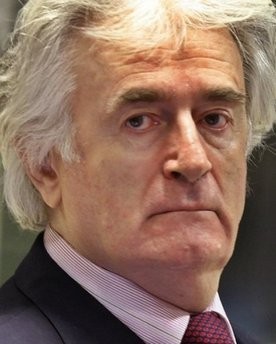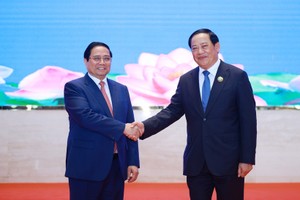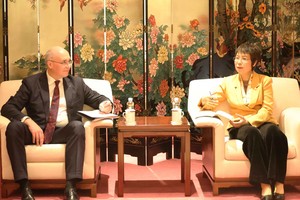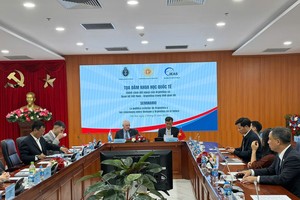Radovan Karadzic suspends the boycott of his genocide trial on Monday to outline his defence, seeking to portray Serbs as a minority that acted in self-defence in the Bosnian war.
The wartime Bosnian Serb leader, who is conducting his own defence in The Hague, will argue that the 1992-95 conflict "was a civil war that the Serbs did not want," his legal adviser Marko Sladojevic told AFP last week.
In his first appearance at trial, which opened last October, Karadzic will tell the judges of the International Criminal Tribunal for the former Yugoslavia (ICTY) that Bosnian Serbs "merely responded to the actions of others," said the lawyer.
The Bosnian war, over which Karadzic stands charged of genocide, war crimes and crimes against humanity, killed 100,000 people and displaced 2.2 million.

Arrested on a Belgrade bus in July 2008 after 13 years on the run, the 64-year-old risks life imprisonment. He has pleaded not guilty.
Prosecutor Alan Tieger told the tribunal last year that Karadzic was the "supreme commander" of an ethnic cleansing campaign of Croats and Muslims in pursuit of a Greater Serbia that was to include 60 percent of the territory of Bosnia.
This included the 1995 Srebrenica massacre of more than 7,000 captured Muslim men and boys, and the 44-month siege of the capital Sarajevo that ended in November 1995 with some 10,000 people killed.
Karadzic is alleged to have worked with Yugoslav strongman Slobodan Milosevic, who died in March 2006, four years into his own genocide trial in which he also conducted his own defence.
Karadzic boycotted the start of his trial in October last year, insisting on more time to prepare and causing a four-month delay.
The court in November appointed British lawyer Richard Harvey to take over the defence in case the accused opts to continue his absence.
Karadzic has since sought a new delay of the trial until June 17, after his two-day opening statement concludes on Tuesday, to study an additional 400,000 pages of prosecution evidence he claims have been filed since October.
His request was refused by the court which ruled last Friday that the first prosecution witness, whose identity is being withheld, will testify on Wednesday.
Under these circumstances, Karadzic was likely to resume his boycott, said Sladojevic. "I am not sure he will come (to court on Wednesday)," he said.
























